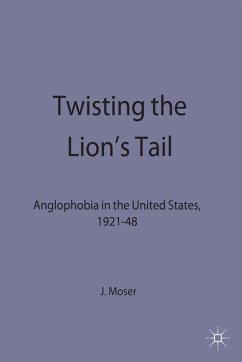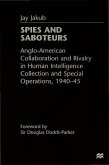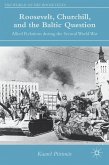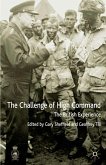Although the years 1921-48 saw a gradual strengthening of the so-called 'special relationship' between the United States and Great Britain, anglophobia remained a potent force in American political life throughout that period. In Twisting the Lion's Tail , John E. Moser examines this phenomenon, showing how traditional American images of King George III and the redcoats were revived by immigrants, farmers and other groups hoping to advance an anti-British agenda.
Hinweis: Dieser Artikel kann nur an eine deutsche Lieferadresse ausgeliefert werden.
Hinweis: Dieser Artikel kann nur an eine deutsche Lieferadresse ausgeliefert werden.
'This is an original and enlightening, as well as enjoyable book - it should be compulsary reading for anyone in Britain who believes in the special relationship'. - John Charmley, Senior Lecturer in English History, University of East Anglia
'Moser's valuable study charts the forgotten story of a key dynamic on the first two centuries of US foreign policy: Anglophobia. Here we read the full story of its last flowering as a component in American interwar neutrality and wartime politics before Twisting the Lion's Tail melted into the alliance of the Cold War.' - Nicholas Cull, Professor of American Studies, University of Leicester
'...the most significant piece of recent research in the field.' - Nicholas J. Cull, University of Leicester, Twentieth Century British History
'...startling...so necessary. Written by an American professor in a style blessedly un-academic, this slender, fast-paced volume is a rarity among histories. Not only does it add tounderstanding, it supplies knowledge where there was almost none...this marvellous, disturbing book.' - Robert Sam Anson, History
'Moser's valuable study charts the forgotten story of a key dynamic on the first two centuries of US foreign policy: Anglophobia. Here we read the full story of its last flowering as a component in American interwar neutrality and wartime politics before Twisting the Lion's Tail melted into the alliance of the Cold War.' - Nicholas Cull, Professor of American Studies, University of Leicester
'...the most significant piece of recent research in the field.' - Nicholas J. Cull, University of Leicester, Twentieth Century British History
'...startling...so necessary. Written by an American professor in a style blessedly un-academic, this slender, fast-paced volume is a rarity among histories. Not only does it add tounderstanding, it supplies knowledge where there was almost none...this marvellous, disturbing book.' - Robert Sam Anson, History








